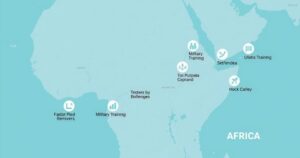Mozambique Awaits Election Results Amid Allegations of Manipulation by Ruling Party

Mozambique held general elections on October 9, 2024, with the ruling Frelimo party seeking to maintain its power for over 50 years. While initial results are pending, opposition candidates have raised concerns about electoral fraud, highlighting issues such as restrictions on monitoring and irregularities in the voting process. Daniel Chapo of Frelimo is favored to succeed President Filipe Nyusi, while independent candidate Venancio Mondlane has gained popularity among disaffected young voters. The election outcome could significantly influence the country’s political future amid ongoing instability and economic challenges.
Mozambique is currently awaiting the preliminary results of its general elections held on October 9, 2024, amid concerns surrounding potential electoral fraud as raised by opposition candidates. The voting process concluded without major incident; however, opposition figures assert that the ruling Front for the Liberation of Mozambique (Frelimo) manipulated the electoral process. The counting of votes commenced immediately following the closure of polls, with initial results anticipated within days. Full results must be submitted to the Constitutional Council for formal ratification within 15 days of the election. Frelimo, which has been in power since Mozambique achieved independence from Portugal in 1975, seeks to extend its governance beyond a half-century. Daniel Chapo, the party’s presidential candidate, is perceived to have the advantage in succeeding President Filipe Nyusi, who is limited to two terms. Chapo has been a fresh face within Frelimo, emerging as the unexpected candidate from an internal election. Chapo faces significant competition from independent candidate Venancio Mondlane, a newcomer to the political landscape who has gained traction among younger voters, particularly those frustrated by unemployment and corruption. All presidential candidates, including Mondlane, have expressed concerns regarding the electoral process, highlighting issues such as pre-maturely unsealed ballot boxes and restricted monitoring access. Frelimo has a history of alleged electoral rigging; unrest erupted last year following local elections where Frelimo secured victory. “Young people are not going to take another fraud,” Mondlane stated, emphasizing the urgency of fair electoral practices. Although European Union observers noted no significant problems on election day, it is still early to draw definitive conclusions about the integrity of the elections. Local monitoring groups also expressed concerns regarding restricted access for party delegates to polling stations. Despite facing various challenges, including a violent jihadi insurgency in Cabo Delgado province affecting local security and economic projects, voting proceeded in the region. Mozambicans participated not only in the presidential election but also in parliamentary and provincial elections on the same day. The other candidates include Ossufo Momade of the Renamo party and Lutero Simango from the Mozambique Democratic Movement, adding to the competitive nature of the electoral landscape. The ongoing political dynamics highlight the complexity of governance in Mozambique, shaped by historical conflicts and contemporary challenges.
Mozambique’s political landscape has been dominated by the Frelimo party since the country’s independence in 1975. Frelimo established a one-party state, and subsequent political developments included a prolonged civil war against the rival Renamo party. This civil conflict, which lasted 15 years, ended with a peace agreement in 1992, but tensions have persisted, leading to sporadic violence. The current elections are significant as they mark Frelimo’s potential continuation in power for over 50 years. Economic difficulties, youth disillusionment with the government, and issues surrounding election integrity are pivotal factors influencing the current elections.
The recent general elections in Mozambique present a critical juncture for the nation as the Frelimo party seeks to extend its long-standing rule amidst allegations of electoral misconduct. With a competitive field featuring independent candidate Venancio Mondlane and others challenging traditional political norms, the outcomes of these elections could shape the future political landscape of Mozambique. The ongoing concerns raised by opposition groups about the electoral process highlight the need for transparency and integrity in governance, especially given the youth’s increasing demand for accountability.
Original Source: apnews.com







